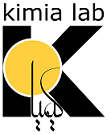
November 4, 2020 – UW’s Kimia Lab will contribute to WHO’s global research for cancer categorization. The International Collaboration for Cancer Classification and Research (IC3R) officially accepted Kimia Lab as a full member on October 22, 2020. The UW lab, which is specialized on image search in medical archives, will assist IC3R to implement content-based image retrieval for a WHO global digital atlas of histopathology images. The project will start with a pilot project for breast cancer in 2021.
The International Agency for Research on Cancer (IARC), together with several international partners, has established IC3R to promote evidence-based practice and standards for cancer classification and research. IC3R will help to address challenges related to tumour classification, such as its increasingly multidimensional nature, the overwhelming amount of scientific information available in this area, and the translation of research findings into tumour classification and cancer diagnoses. IC3R is an initiative of the WHO Classification of Tumours Group (WCT) at IARC, which produces the WHO Classification of Tumours series used by pathologists and cancer researchers worldwide. WCT is uniquely situated to initiate an international collaboration to assess tumour classification and its relevant issues. IC3R will provide a forum to coordinate evidence generation, synthesis, evaluation, and standard setting for tumour classification.
Some other members of the IC3R Steering Group are IARC; the Molecular Diagnostics Pathology Department at Centre Léon Bérard, in Lyon, France; the Istituto Nazionale Tumori “Fondazione Pascale” in Naples, Italy; the Cancer Centre of Sciensano, in Brussels, Belgium, and National Cancer Center, Japan. Some of the associated entities also include the American Society of Clinical Oncology (ASCO), the International Collaboration on Cancer Reporting (ICCR), and the National Cancer Registry and Analysis Service, Public Health, England.
The Laboratory for Knowledge Inference in Medical Image Analysis, short Kimia Lab, established in Fall 2013 at the University of Waterloo, conducts research at the forefront of mass image data in medical archives using machine learning schemes with the ultimate goal of extracting information that cannot only support a more speedy and accurate diagnosis and treatment of many diseases but also, and more significantly, establish new quality assurance based on mining of collective knowledge of medical experts. Kimia Lab is presently home to 14 Ph.D. students, 4 MSc students, 3 research assistants, and a postdoctoral fellow. The lab’s director, Professor Hamid Tizhoosh is an expert in medical image analysis and artificial intelligence with more than 25 years of academic and industrial experience. Kimia Lab collaborates with several pathology departments at multiple research institutions, among Ohio State University (Dr. Anil Parwani), University of Michigan (Dr. Liron Pantanowitz), University Health Network (Dr. Phedias Diamandis), Hamilton Health Sciences (Dr. Clinton Campbell), and Grand River Hospital (Dr. Adrian Batten).
